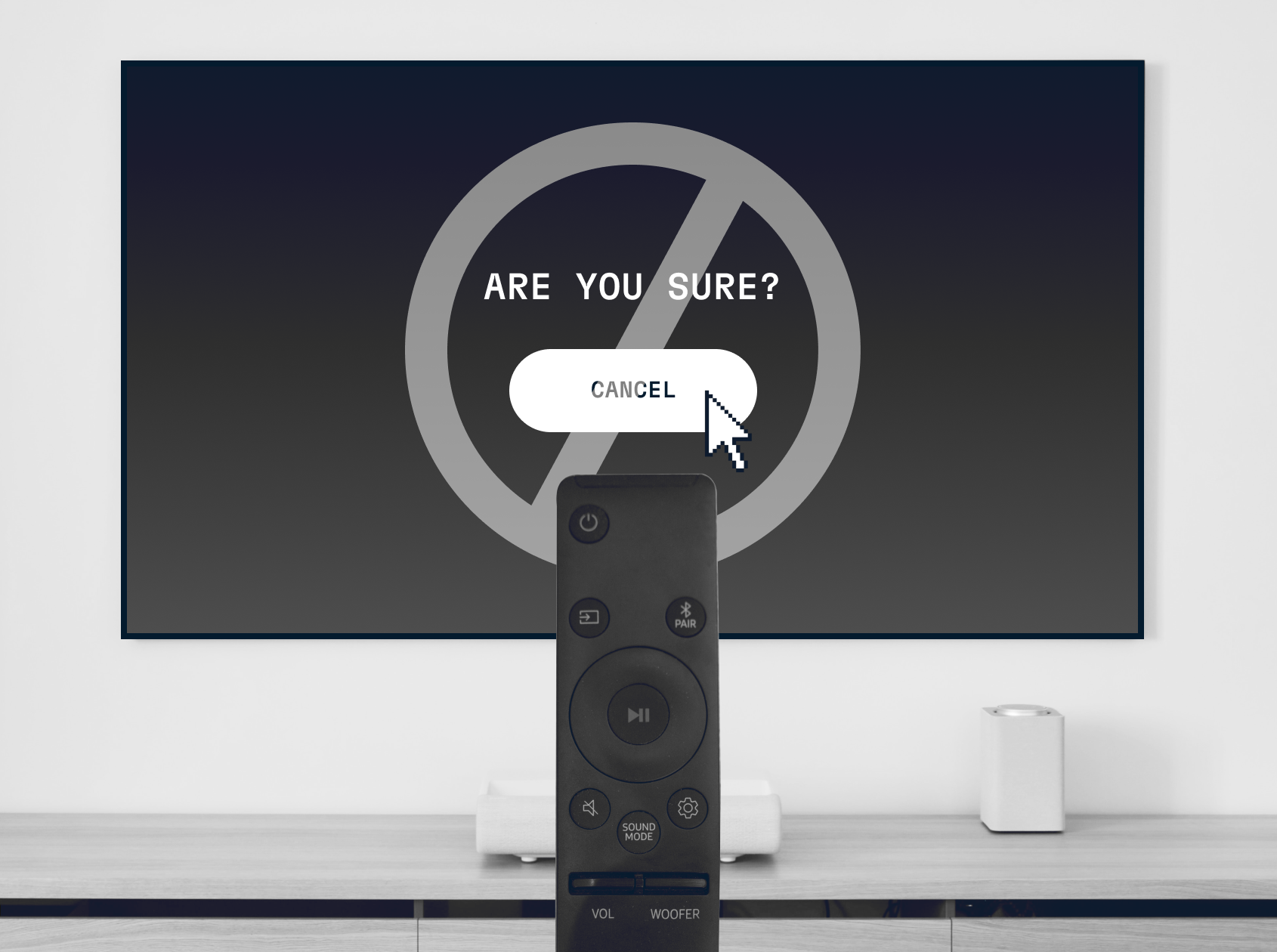Canceling a service shouldn’t be difficult. An anodyne statement, right? No one wants to answer condescending questions like “Are you sure?,” navigate phone menus, wait for a representative, and sift through emails for an account number — only to be forwarded somewhere else, disconnected, or told to call back later.
That’s why when the Federal Trade Commission recently approved a popular rule requiring businesses to make canceling services “at least as easy” as it was for customers when they signed up, you would think it’d be a no-brainer.
Well, it turns out some big companies don’t agree. Now, groups representing Charter Communications, Comcast, Disney, and more from across the cable, internet, home security, and online advertising industries, are suing to block that rule from taking effect. They insist that the FTC’s “click to cancel” rule is “arbitrary, capricious and an abuse of discretion.” That roughly translates to: “Don’t kill our vibe. We like things just the way they are.”
This only supports consumers’ long-held suspicion: businesses only want them for their money. These corporations are pushing back because they think customers will leave them once it’s easier to do so, which could devastate businesses that rely on recurring revenue. We covered this here last month. I explained it to PYMNTS. And I recently spoke with NPR about it, too.
But here’s why fighting the FTC’s new rule is misguided.
First, firms that bury cancel capabilities and aren’t upfront about pricing just feel dirty. Remember Columbia House? It was a popular mail-order service where customers could get a large number of CDs, records, or DVDs for a very low initial price (like 12 CDs for a penny). But after the intro deal, members were required to purchase additional items at full price, often on a subscription basis.
When people wanted to cancel their memberships, it was notoriously difficult. You had confusing fine print, items auto-shipping, and inconvenient cancellation procedures. This experience made “Columbia House” shorthand for difficult or predatory subscription practices. We see this play often today and have a phrase for it: negative option billing, a marketing practice in which a service or product is automatically provided to consumers, and they are charged unless they take action to decline it.
Columbia House peaked in the ’90s and fizzled out soon after, but the predatory practice endures, leaving us feeling like suckers.
Second, making cancellations easy actually increases customer trust and loyalty, and makes a company stronger. Why? Because when businesses are forced to focus on delivering better services and addressing consumer needs, customers are happier. Smart businesses also offer flexible options like subscription pauses (78% of consumers want this option, by the way) or adjustments, deepening relationships. A seamless cancellation process improves brand reputation and might even create opportunities for future win-backs. Prioritizing customer-centric practices over deceptive tactics benefits both the business and the consumer.
And finally, the obsession with blocking cancellations misses the true thing businesses should be focusing on, which is creating and selling a great product. If a business has a great product, customers won’t just walk away from them. But desperately clinging to those who want to cancel only pushes them further away and reveals that a business is not confident in its product. Have you ever had a difficult experience with a business that endeared you to them? That’s not how this works. That’s not how any of this works.
But that’s not clicking in a lot of these board rooms. So here comes the legal dance. No one knows how this is going to end, but if consumers continue to be denied something so fundamental, they’re going to fight even harder. And they have a lot of advocates in state and local governments, the halls of Congress, and beyond, standing behind them.
But why should it come to that? This shouldn’t be difficult.



